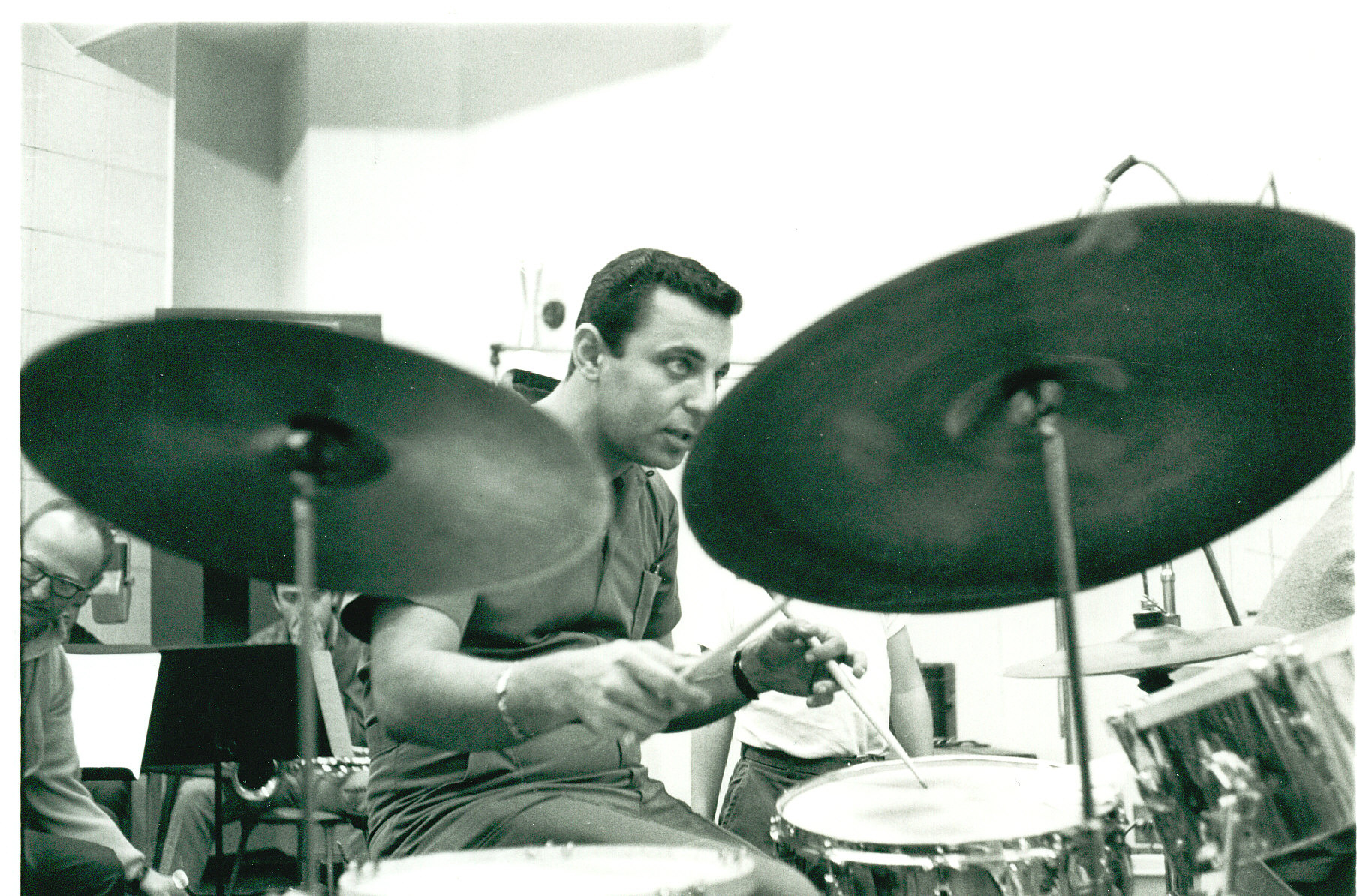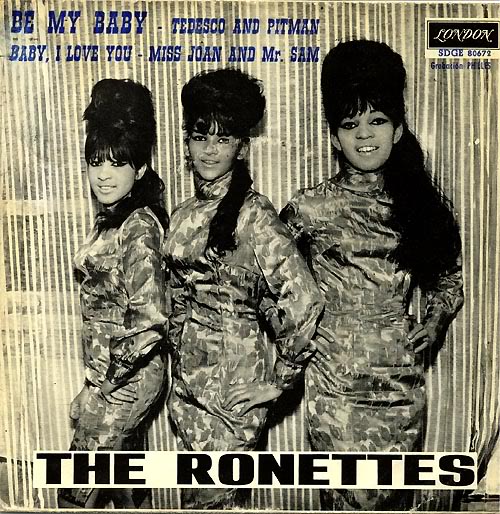
WALL STREET JOURNAL: Hal Blaine put his hand on my shoulder. “This is going to break your heart, but much of the music you heard in the ’60s and early ’70s wasn’t recorded by the people you saw on the album covers,” he said. “It was done by me and the musicians you see on these walls.” Talk about a “Wizard of Oz” moment. Last week I traveled to Mr. Blaine’s home here to talk about his prolific career as the Buddy Rich of rock and pop recordings. I also wanted to know more about his role as the ringleader of the Wrecking Crew—an ad hoc group of about 30 highly skilled Hollywood studio musicians who played the instruments on thousands of hit records released between 1961 and 1976. Many baby boomers still remember the outrage that followed a magazine’s revelation in 1967 that the Monkees didn’t play on all of their recordings. It turns out that neither did the Beach Boys, the Mamas & the Papas, the Byrds, the Association, Jan & Dean and dozens of other rock groups of the era. That honor belongs to Mr. Blaine and the Wrecking Crew, whose members included Glen Campbell and Leon Russell. If rock is about a beat, and a beat is about the drums, then the 82-year-old Mr. Blaine is arguably one of America’s greatest living rock musicians. Wednesday marks 50 years since he recorded his first No. 1 hit—Elvis Presley’s “Can’t Help Falling in Love.” Mr. Blaine went on to appear on 38 additional chart-toppers, including the Ronettes’ “Be My Baby,” the Byrds’ “Mr. Tambourine Man,” the Mamas & the Papas’ “Monday, Monday,” Simon & Garfunkel’s “Mrs. Robinson” and “Bridge Over Troubled Water,” and the Carpenters’ “(They Long to Be) Close to You.” Those represent just a fraction of his output. Mr. Blaine’s beats set hips twisting on upward of 5,000 songs—many of them also hits. He even was the drummer on the Grammys’ “Song of the Year” for six years in a row from 1966 to 1971. In this regard, Mr. Blaine has no living peer. On Billboard’s Hot 100 chart, Mr. Blaine’s nearest rival is the Beatles with a measly 20 No. 1 hits. MORE
RELATED: The intro to “Be My Baby” must have sounded like gunshots back in the summer of 1963 — just months before Kennedy’s death ride past the grassy knoll — because back then drums simply didn’t hit that hard. Even now, when rock ‘n’ roll has grown louder than bombs, those drums sound like they’re being played in some vast, immeasurably grand space — like they’re ricocheting around the sunken belly of the Titanic or bouncing off the vaulted ceiling of the Sistine Chapel. Time and repetition have rendered the beat iconic, as classic as tail fins and french fries: boom boom-boom CHA! boom boom-boom CHA! And then the Wall of Sound comes down like a velvet hammer — a billowing curtain of strings and a rolling piano topped with a candelabra of tambourines, maracas and castanets — resonating endlessly in colossal reverb and pristine mono. The sound soars, swelling into an eternal sigh, a symphonic teen fantasia of need and want. (There’s no telling how many takes Phil Spector demanded. Legend has it he once spent 12 hours listening to one note until he was certain  it was perfect.) And then the vocals come in, like a choir of angels with dirty faces. It’s Ronnie Bennett — soon to be Ronnie Spector — of the Ronettes. Their unholy 1968 to 1974 marriage could be summed up with the title of another Spector production, “He Hit Me (It Felt Like a Kiss).” Spector liked to tell people that when he discovered the Ronettes he thought they were good-looking but couldn’t sing so good. Still, he “kinda promised their mother” that he would make them stars. And so Ronnie became his songbird, the canary in the coal mine of his black-leather soul. If Brian Wilson — who became obsessed with “Be My Baby,” more or less using it as the floor plan for the Beach Boys’ sound — was teen America’s Mozart-on-the-beach, Spector was its Beethoven: dark, brooding, brilliant and doomed. That’s why he always wore shades — not to keep the light from getting in, but to keep the darkness from getting out. (Jonathan Valania)
it was perfect.) And then the vocals come in, like a choir of angels with dirty faces. It’s Ronnie Bennett — soon to be Ronnie Spector — of the Ronettes. Their unholy 1968 to 1974 marriage could be summed up with the title of another Spector production, “He Hit Me (It Felt Like a Kiss).” Spector liked to tell people that when he discovered the Ronettes he thought they were good-looking but couldn’t sing so good. Still, he “kinda promised their mother” that he would make them stars. And so Ronnie became his songbird, the canary in the coal mine of his black-leather soul. If Brian Wilson — who became obsessed with “Be My Baby,” more or less using it as the floor plan for the Beach Boys’ sound — was teen America’s Mozart-on-the-beach, Spector was its Beethoven: dark, brooding, brilliant and doomed. That’s why he always wore shades — not to keep the light from getting in, but to keep the darkness from getting out. (Jonathan Valania)
